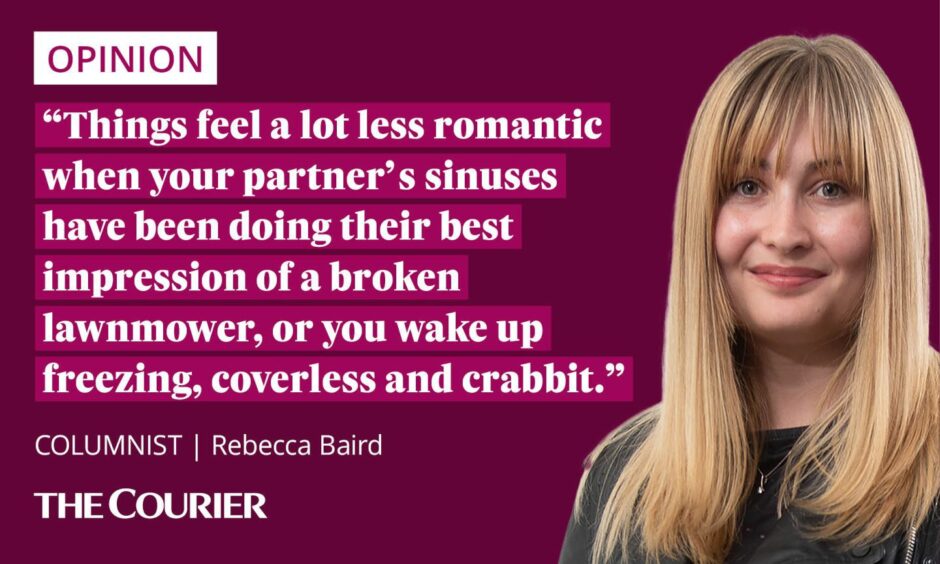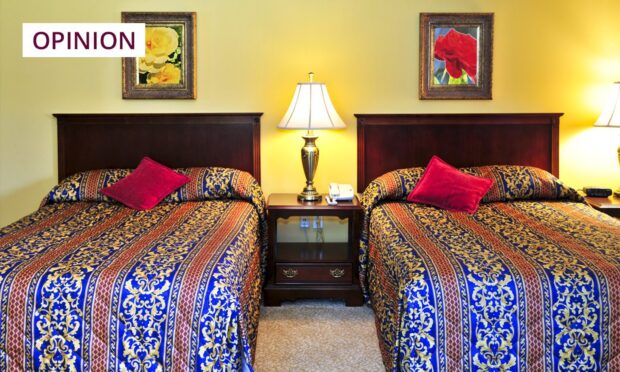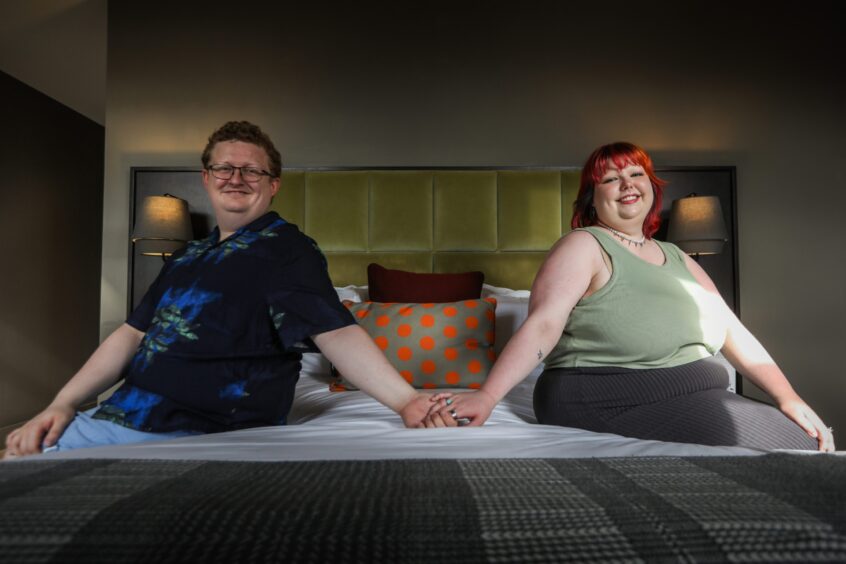The sneaky thing about stigma is that often, it doesn’t show itself in what’s said outright.
More often than not, stigma lies in what we don’t want to say.
It catches us holding our tongues when we’re on the verge of sharing something that’s normal to us, but we suddenly fear others will judge.
And I felt it hanging in the air when I spoke to a lovely Dundee couple, Maddie and Tony, last week about their choice to sleep in separate bedrooms.
Their arrangement isn’t unusual – nearly half of millennials have taken to sleeping separately from their partner, either occasionally or regularly.
Yet I can understand Maddie and Tony’s previous reticence to readily share the fact of their ‘sleep divorce’ in their personal and professional lives, due to the stigma that still surrounds romantic partners sleeping separately.

I know loads of couples who choose for whatever reason – from medical issues and snoring to cover stealing and starfishing – to sleep in separate beds.
But it’s always admitted with low voices and a tinge of embarrassment, the way adults admit to still snuggling our childhood teddies or not liking the taste of alcohol.
Because there’s something that feels almost childish about sleeping separately. Maybe it’s the nostalgic mental image of a single bed, and being tucked up all alone.
More likely, I reckon, the stigma comes from some simplistic notion that sharing a bed is synonymous with sex – and that without one, you stop the other.
Which is frankly ridiculous.
A good night’s sleep is height of romance
‘Sleeping together’ has become a very loaded term, and there’s a stereotype that when partners choose to sleep separately, intimacy has broken down or there’s been a falling out.
But let’s face it – ‘sleeping together’ is not always conducive to actually sleeping.
Hollywood depicts a night of romance as a bedroom tastefully faded to black and a miraculously peaceful pair snuggled up against the morning sunshine.
In reality, things feel a lot less romantic when your partner’s sinuses have been doing their best impression of a broken lawnmower, or you wake up freezing, coverless and crabbit.
Nothing breeds resentment faster than being kept awake by a nightmarish sleeper. All that homicidal rage, and you can’t even hold the grudge in the morning, because they didn’t mean it.
Likewise, there’s nothing quite like the guilt of knowing you kept your loved one from dreamland because of your tossing and turning.
And that’s if you can even get to sleep. According to the NHS, as many as 1 in 3 UK adults suffers from insomnia.
That means there’s a really high chance that in any couple, someone’s going to have trouble sleeping even on their own, never mind adding another person into the mix, with their body heat and grinding teeth.
People in love are supposed to take care of one another – including making sure both partners are rested.
So it just seems like good sense that so many of us are now choosing to sleep apart, without it signalling some emotional conflict or a lack of love.
There’s no rules for being in a relationship
Personally, I’m all in favour of it. I need my sleep. And luckily, I have a wonderful partner who knows this, and doesn’t take it to heart when I take a night apart.
We don’t live together, so that’s easy enough for us to do. But a few weeks ago, we were talking about eventually living together, and I felt myself getting agitated.
He clocked it and asked me what was concerning me. And to my surprise, I felt my voice get really small. Teddy bear small, alcohol-is-yucky small.
And in my tiny voice I said: “What if I can’t sleep, and then I’m horrible?”
I felt, in that moment, like I was the world’s biggest relationship failure. The stigma of not wanting to share my bed made me feel like I was rubbish at being in love.
I shame-spiralled into serious depths of girlfriend anxiety, all for wanting more than my side of the bed. Isn’t that stupid?
My partner just laughed and said: “We’ll have a spare bed, don’t worry.”
Just like that, problem solved.
And the funny thing is, once he’d said it, it didn’t seem strange at all.













Conversation